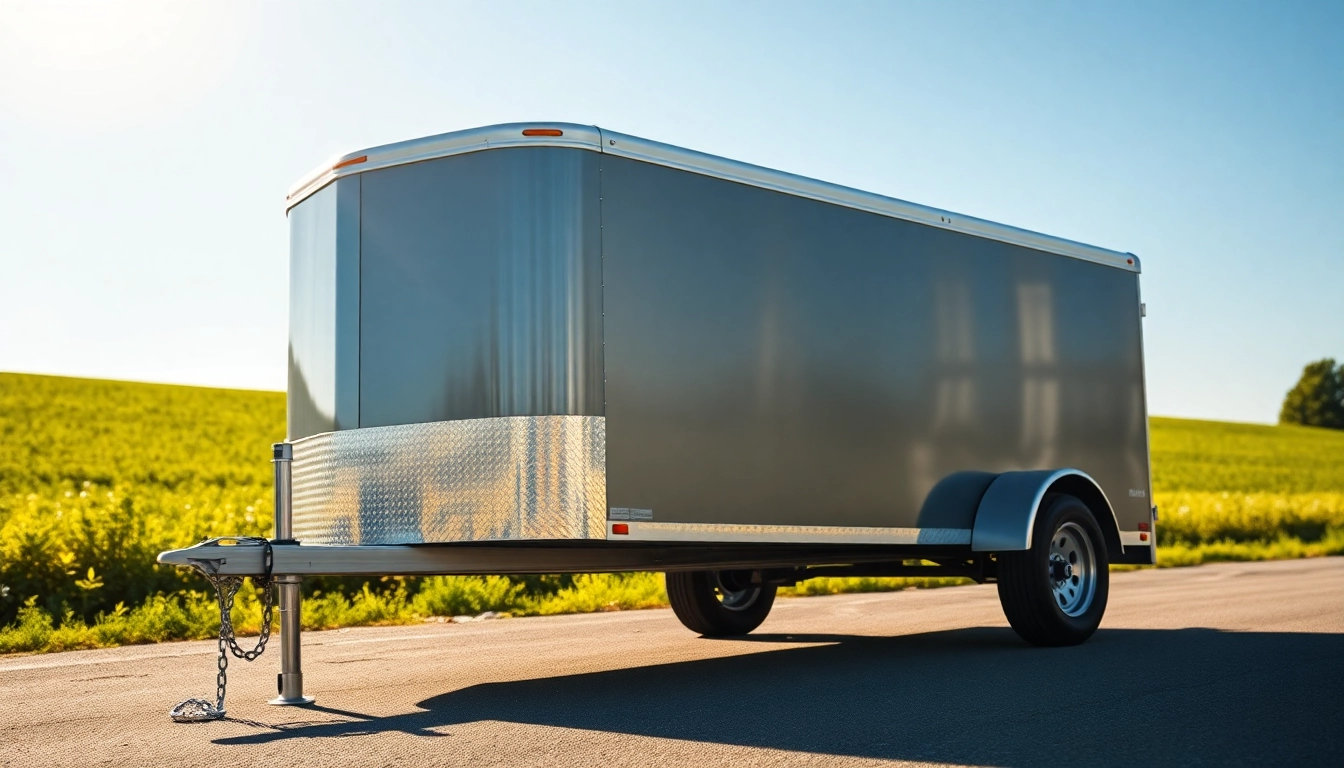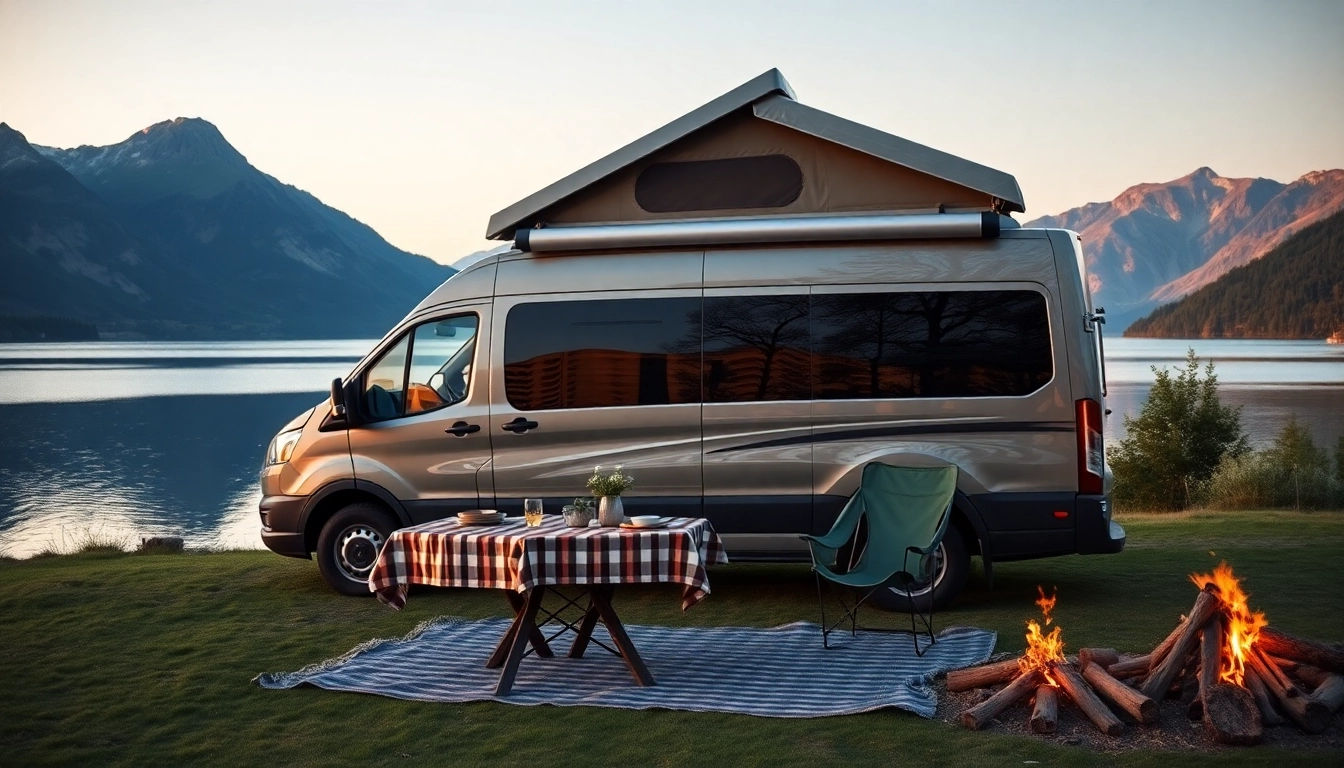Understanding Trailers: Types and Features
Different Types of Trailers Available
When considering the purchase of a trailer, it’s essential to understand the different types available, as each serves varying purposes. Trailers can be categorized broadly into utility trailers, enclosed trailers, flatbed trailers, car haulers, and specialty trailers. Each type comes with unique features suited for specific needs.
- Utility Trailers: These are versatile and often feature an open design that allows for easy loading and unloading of materials. They are popular for transporting lawn equipment, bicycles, and small machinery.
- Enclosed Trailers: Offering greater security and protection from the weather, enclosed trailers are ideal for transporting valuable items that need to be shielded from the elements.
- Flatbed Trailers: These trailers are characterized by their open design and are commonly used for carrying heavy loads, including construction equipment, lumber, and other large objects.
- Car Haulers: Designed specifically for transporting vehicles, car haulers come with ramps and secure tie-down points to ensure the vehicles are safely transported.
- Specialty Trailers: These include trailers designed for niche sectors, such as boat trailers, livestock trailers, and food service trailers, with unique features tailored to their purpose.
Key Features to Look For
As you search for trailers near me, it’s vital to evaluate certain features that will enhance your experience and ensure suitability for your specific requirements. Here are some key aspects to consider:
- Load Capacity: Assess the maximum load capacity as this affects not just the type of items you can transport but also the overall stability and safety of the trailer.
- Construction Material: Trailers can be constructed from several materials, including steel, aluminum, and fiberglass. Each has its pros and cons regarding weight, durability, and cost.
- Tongue Style: The coupling mechanism (e.g., A-frame, gooseneck, or fifth wheel) impacts towing capability and maneuverability.
- Braking System: Opt for trailers with reliable braking systems to ensure better safety, especially when transporting heavier loads.
- Size and Dimensions: Make sure to choose a trailer size that accommodates your needs while being easy to tow and park.
Benefits of Choosing the Right Trailer
Selecting the right trailer is not just about functionality; it’s about enhancing your overall experience and safety on the road. A well-chosen trailer can provide advantages, such as:
- Increased Efficiency: The right trailer can streamline your workflows, whether for personal use or in a business context.
- Cost-Effectiveness: Investing in a suitable trailer can reduce transportation costs over time by minimizing wear and tear on your vehicles and improving fuel efficiency.
- Safety: Properly configured trailers will minimize risk on the road, ensuring that loads remain secure and that driving stability is maintained.
- Versatility: A multifunctional trailer means you can use it for various purposes, making it a valuable asset when your needs change.
How to Search for Trailers Near Me
Utilizing Online Platforms Effectively
In today’s digital age, searching for trailers has never been easier, thanks to the myriad of online platforms available. Utilizing search engines is a great starting point. Enter keywords like “trailers near me” or “trailer sales” to get results tailored to your location. Additionally, dedicated trailer sales websites often list inventories, prices, and specifications to aid decision-making.
Local Dealerships vs. Online Listings
While online platforms provide convenience, local dealerships offer hands-on experiences that online listings cannot match. Visiting a dealer allows potential buyers to inspect trailers, assess their build quality, and engage with knowledgeable staff who can provide personalized advice. Weigh the pros and cons of each method based on your purchasing preferences.
Evaluating Proximity and Convenience
When seeking the best deals, consider the location of dealerships or sellers. Traveling long distances can add to your purchase cost; hence, focusing on trailers near me can save on fuel and time. Opt for sellers who offer delivery options or have favorable return policies if a trailer doesn’t meet your expectations.
Buying Trailers: Tips for Success
Essential Questions to Ask Sellers
Before finalizing any transaction, it is crucial to ask the right questions. Begin with:
- What is the trailer’s history? (if used)
- Are there any warranties or guarantees? What do they cover?
- What is the reason for selling the trailer?
- Has the trailer been involved in any accidents or major repairs?
Inspection Tips Before Purchase
Your due diligence extends beyond asking questions. Before committing, inspect the trailer thoroughly. Look for signs of wear, structural integrity, and functionality:
- Examine the frame for rust or damage.
- Check the tires for tread wear and inflation.
- Inspect electrical connections and lights for functionality.
- Test any brakes or hitch mechanisms to ensure they operate smoothly.
Understanding Pricing and Financing Options
Understanding market prices is paramount before making a decision. Research the fair market value for the type of trailer you’re interested in, taking into account its condition, age, and any unique features. For financing, explore various options, including loans through banks, credit unions, or dealership financing, to find the best interest rates and terms.
Maintaining Your Trailer: Best Practices
Regular Maintenance Tips
Proper maintenance will extend the life of your trailer and keep it performing optimally. Set a regular maintenance schedule that includes:
- Checking tire pressure and condition regularly.
- Inspecting the brakes and ensuring the brake fluid is topped off.
- Cleansing the trailer to prevent rust and other forms of deterioration.
- Lubricating moving parts, including hitch connections.
Common Repairs and Troubleshooting
Despite regular maintenance, issues may arise. Be prepared to handle common problems such as:
- Brake malfunctions – ensure the braking system is properly maintained.
- Electrical issues – check for faulty wiring or blown fuses.
- Frame damage – assess for cracks or bends and repair accordingly.
Seasonal Preparations for Your Trailer
With changing seasons, different maintenance practices may apply. Before winter, ensure all surfaces are adequate for snow and ice. This may involve greasing parts and covering the trailer to prevent damage from frost. In summer, check that the cooling systems are functioning well to avoid overheating.
Trailer Uses and Applications
Trailers for Business vs. Personal Use
Understanding the intended use of your trailer can greatly influence your purchasing decision. For businesses, trailers are essential for various operations, including transportation of materials, tools, and products. Personal use may range from recreational activities, like camping, to transporting goods for home renovations. Tailoring the choice based on these uses can enhance efficiency.
Creative Uses for Trailers
Trailers can be utilized in innovative ways. Some examples include:
- Mobile businesses: Transforming a trailer into a food truck or pop-up shop.
- Storage solutions: Using trailers as temporary or permanent storage for tools or inventory.
- Event hosting: Converting a trailer into a mobile office or outdoor event space.
Safety Considerations While Using Trailers
Safety should be a foremost concern while towing a trailer. Always adhere to best practices such as:
- Loading the trailer evenly to prevent swaying.
- Using appropriate hitch connections based on the load.
- Following traffic regulations and maintaining visible markers to indicate trailer size.



